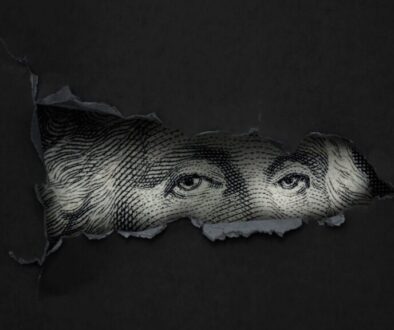Will Disney Investors Get Their Happily Ever After?
BlackRock and Vanguard Hold the Keys to the Magic Kingdom
On March 11, Disney shareholders will vote on a proposal asking the company to provide a report on its board oversight procedures for lobbying and its federal and state lobbying expenditures, including indirect funding of lobbying through trade associations.
Last year, the same proposal seeking lobbying disclosure received more than 39% support from shareholders. Analysis shows that the two largest holders of Disney, Vanguard and BlackRock, together held the power to give the proposal majority support, but that each voted against the proposal. As shareholders vote on the 2020 proposal, Vanguard and BlackRock again hold the balance of proxy voting power.
Lobbying is important to Disney. Its federal lobbying efforts have been described as “so effective that the United States changed its copyright law twice, in 1976 and in 1998.” Reputation is also very important for Disney, which ranked 4th in reputation of the 100 most visible companies in the United States for 2019, and notes in its filings with the Securities and Exchange Commission (SEC) that damage to its reputation may negatively impact its business. Companies with a high reputation rank perform better financially than lower ranked companies, and executives find it is much harder to recover from a reputational failure than to build and maintain reputation.[1]
Since 2010, Disney has spent over $38.6 million on federal lobbying on issues like intellectual property, copyright, corporate tax reform, digital taxes, NAFTA and the Trans-Pacific Partnership Agreement. At the state level it’s much harder to know exactly how much Disney spends because state disclosure requirements are uneven and data is hard to digest. Disney’s state-level lobbying spending is likely significant. For example, Disney spent over $3.6 million on lobbying in California from 2010 – 2019, and Disney’s lobbying in Florida has been described as “the 800-pound mouse protecting its cheese in the backrooms of city hall and state government.” Disney also lobbies abroad, reportedly spending between €700,000 – €799,000 on lobbying in Europe for 2019.
Disney shareholders also face a trade association lobbying blind spot, as Disney fails to fully disclose its trade association payments used for lobbying. Disney serves on the board of the National Association of Broadcasters, which spent $14.2 million on federal lobbying in 2018, and is a member of NCTA – The Internet & Television Association, which spent $13.2 million on federal lobbying in 2018. Disney also belongs to the Chamber of Commerce which has spent nearly $1.6 billion on lobbying since 1998.
Investors believe Disney’s trade association payments used for lobbying could pose reputational risks. Trade associations often actively lobby for issues that are contrary to a company’s public statements and values or take controversial public stands. For example, Disney signed an agreement to work with United Nations Environment to combat and raise awareness around climate change, yet the Chamber undermined the Paris climate accord. A 2018 report looking at political engagement transparency rated Disney an “F” on responsible lobbying.
With approximately 11% of the voting power at Disney, the large mutual fund companies Vanguard and BlackRock are in a position to determine whether the shareholder proposal passes or fails. As the largest managers of retirement savings, mutual funds control significant voting shares in America’s most powerful companies. According to the 2020 Disney proxy statement, Vanguard beneficially owned 105,895,590 shares (5.9%), and BlackRock owned 92,760,946 shares (5.1%). Yet, Vanguard and BlackRock consistently vote against shareholder proposals that attempt to bring corporate political activity into the light.
Last Year’s Proposal Would Have Passed with Blackrock and Vanguard Support
In 2019, BlackRock and Vanguard each voted against the shareholder proposal asking Disney to disclose its lobbying to shareholders. If these two mutual funds had instead voted their combined 194,593,987 shares in favor of the 2019 proposal, it would have received a clear majority out of the votes cast for and against.[2]
A recent report by Morningstar found that Vanguard voted against every lobbying proposal in 2019, while BlackRock supported one out of 24. The report also found that the vote by one large asset manager could often tip a resolution’s outcome to a majority. For instance, lobbying disclosure at Exxon Mobil, which earned 37% support, would have passed if both BlackRock and Vanguard had supported it.
Proxy advisor Institutional Shareholder Services has recommended that shareholders vote for the proposal, noting that Disney does not disclose how it reconciles reputational risks when its trade associations’ lobbying activities contradict the company’s public positions and the portions of Disney’s trade association payments used for lobbying are not clear.[3]
Disney is required to report its state lobbying and already has this information, so it could easily provide this information to shareholders, as investors are asking for in the shareholder resolution up for vote. Deficiencies in the law means that Disney is not required to disclose its trade association payments, but if the company is internally tracking those payments- as responsible corporate governance would assume- then the company should have no problem sharing those details with investors.
The proposal is part of an ongoing ten-year investor campaign for greater corporate lobbying disclosure, which has seen investors increasingly supporting this type of disclosure.
Take Action
If you own shares directly in Disney, you should vote in favor of Item 5, which asks the company to prepare an annual report on its lobbying activity so that shareholders- the true owners of the company- can assess the associated risk.
If you don’t own stock directly in Disney –or any other company where these shareholder resolutions are filed this year — but are worried about undisclosed political spending by corporations that is being used to influence our democracy, chances are you can have an impact through your 401(k) instead.
If you invest your retirement through Vanguard, tell the company to change the way it votes so that progress on disclosure can move forward. If you invest through BlackRock, State Street, Dimensional, Fidelity or Vanguard, you can vote with your dollars and tell the funds to support disclosure.
Check out the shareholder advisory from Seventh Generation Interfaith Inc., on behalf of the lobbying disclosure resolution filed by the Congregation of Sisters of St. Agnes and co-filers Walden Asset Management, Mercy Investment Services, Congregation of St. Joseph, Daughters of Charity, Fresh Pond Capital, Missionary Oblates of Mary Immaculate, Greater Manchester Pension Fund and Franciscan Sisters of Perpetual Adoration.
[1] “Reputation Risk,” The Conference Board, 2007, p. 6.
[2] The 2019 shareholder proposal for lobbying disclosure received 404,451,360 votes for, 625,294,989 votes against and 8,326,501 votes that were abstentions.
[3] ISS 2020 Walt Disney Proxy Analysis, February 14, 2020, p. 32.



